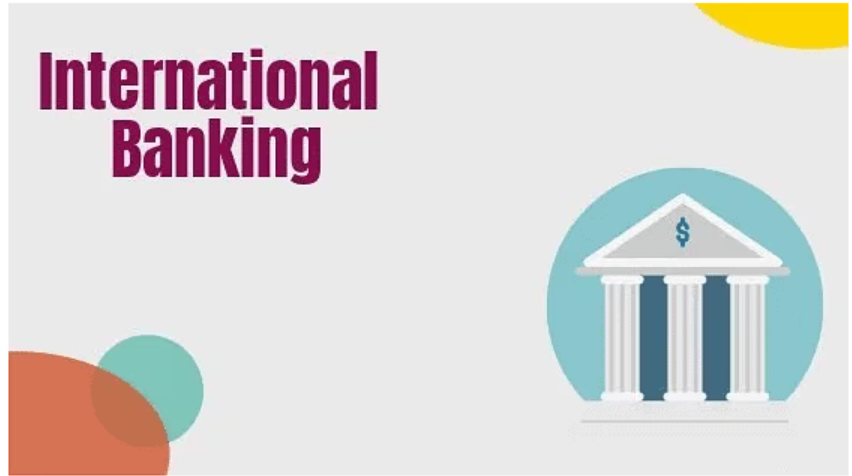Introduction
International banking has evolved into one of the most vital components of the global economy. The International Banking Division plays a crucial role in facilitating cross-border transactions, and helping businesses and individuals navigate foreign markets. This article will dive deep into the functions of an international banking division, its importance in global finance, and the services it provides to clients.
1. What is an International Banking Division?
The International Banking Division refers to the bank branch that focuses on serving customers with cross-border financial needs. This division offers a variety of services to individuals, businesses, and institutions involved in international trade, investments, and other global financial activities. In simple terms, it deals with everything from foreign currency exchange to international lending.
The Role of an International Banking Division
The International Banking Division handles the complexities of global finance. It helps businesses expand globally by offering services like trade finance, foreign exchange services, and overseas transactions. Additionally, these divisions ensure compliance with international regulations to mitigate risks associated with global banking operations.
Services Provided by International Banking Divisions
One of the main functions of an international banking division is providing services like trade finance, cross-border payments, and foreign exchange solutions. They ensure seamless money transfers across countries and help businesses manage currency risks. The International Banking Division also provides advisory services on global market trends and investment opportunities.
Key Features of International Banking Divisions
International banking divisions are equipped with the necessary tools to facilitate smooth international transactions. They have access to international payment networks like SWIFT and offer services like foreign exchange trading. With expert knowledge of global regulations and currencies, these divisions ensure businesses are fully prepared for international expansion.
Importance in the Global Economy
The International Banking Division is essential for the smooth functioning of global trade. It provides businesses with the necessary financial support to venture into foreign markets. Whether it’s facilitating international payments or offering investment advice, these divisions are integral to the global financial ecosystem.
Challenges Faced by International Banking Divisions
While the International Banking Division plays a key role in global finance, it also faces challenges such as fluctuating currency exchange rates, international regulations, and geopolitical instability. Banks must continuously adapt to changes in the global economy to ensure they remain competitive and efficient in providing international services.
2. How the International Banking Division Supports Businesses
One of the most significant ways the International Banking Division helps businesses is by offering services that enable smooth cross-border transactions. International banking divisions have the expertise to guide businesses through complex international markets, helping them expand into new territories and maximize their growth potential.
Trade Finance Solutions
International banking divisions offer businesses trade finance solutions, such as letters of credit and documentary collections, to reduce the risks associated with cross-border transactions. These tools ensure that payments are made securely, and goods are shipped smoothly. Businesses rely on these services to navigate the complexities of international trade.
Facilitating Currency Exchange
With fluctuating exchange rates, managing currency risk is a critical issue for businesses engaged in global commerce. It provides foreign exchange services to help businesses convert currencies at competitive rates. By minimizing the impact of exchange rate fluctuations, businesses can optimize their international transactions and enhance profitability.
International Payments and Transfers
A key function of the International Banking Division is managing international payments and transfers. Whether it’s paying for goods and services or receiving payments from foreign clients, international banking divisions ensure that businesses can send and receive money from anywhere in the world efficiently and securely.
Risk Management Strategies
One of the most important services provided by the International Banking Division is risk management. Businesses operating internationally face a range of risks, including currency fluctuations, political instability, and economic changes. International banking divisions provide guidance on hedging strategies to minimize these risks and protect business assets.
Supporting Global Expansion
For businesses looking to expand into new markets, the International Banking Division offers invaluable support. This includes helping businesses set up foreign accounts, navigate international regulations, and find financing solutions for overseas ventures. With the right banking partner, businesses can scale globally with confidence.
3. The Future of International Banking Divisions
As the world becomes increasingly interconnected, the role of the International Banking Division is expected to grow. The rise of digital banking, blockchain technology, and global payment systems will shape the future of international banking. Let’s explore how these innovations will impact the services provided by international banking divisions.
Digital Banking Transformation
In the near future, digital banking will revolutionize the International Banking Division. With advancements in fintech, banks will be able to provide faster, more secure cross-border payment solutions. Clients will benefit from user-friendly platforms that allow them to execute international transactions with ease and at a lower cost.
Blockchain Technology in Banking
Blockchain technology has the potential to transform international banking. By enabling secure and transparent transactions, blockchain can streamline cross-border payments and reduce the need for intermediaries. This platform is expected to adopt this technology to enhance efficiency and lower costs for businesses and individuals involved in global finance.
Artificial Intelligence and Automation
The use of artificial intelligence (AI) in international banking will make processes more efficient. AI can automate tasks such as risk assessment, customer support, and transaction monitoring. This will allow the International Banking Division to serve clients more effectively while reducing human error and operational costs.
Regulatory Changes
As international banking evolves, so will the regulatory environment. The International Banking Division will need to stay up-to-date with changes in international banking regulations, such as anti-money laundering (AML) laws and know-your-customer (KYC) requirements. These regulations ensure the integrity of global financial transactions and protect against fraud.
Sustainable Finance in International Banking
Sustainable finance is becoming increasingly important in global banking. This Banking Division will play a key role in supporting businesses with sustainable investment opportunities and green financing solutions. This will help businesses meet their sustainability goals while contributing to global efforts to combat climate change.
4. Common FAQs About International Banking Divisions
If you’re new to international banking or thinking about expanding your business globally, you might have some questions about how international banking divisions work. Here are answers to some common questions.
What services do international banking divisions offer?
International banking divisions offer services such as trade finance, foreign exchange, international payments, risk management, and advisory services for businesses involved in global markets. They help businesses navigate complex international regulations and provide financial solutions to support their growth.
How can an international banking division help my business?
An international banking division can help your business by providing support for cross-border transactions, offering financing solutions, and helping you manage currency risks. They also assist with expanding into new markets by offering services like international accounts and market analysis.
What is the importance of foreign exchange services in international banking?
Foreign exchange services allow businesses to convert currencies for international transactions. By offering competitive exchange rates, the International Banking Division helps businesses minimize the costs associated with currency fluctuations, ensuring smooth and cost-effective cross-border payments.
How do international banking divisions handle risks?
International banking divisions help businesses manage risks like currency fluctuations, political instability, and global economic changes. They offer risk management tools like hedging and provide expert advice on minimizing the impact of these risks on business operations.
Will international banking divisions adopt new technologies?
Yes, the future of international banking includes innovations like digital banking, blockchain technology, and AI. These technologies will make international transactions faster, more secure, and more efficient, allowing businesses to operate seamlessly in the global marketplace.
5. Conclusion
The International Banking Division is crucial for businesses and individuals involved in global finance. From facilitating cross-border payments to managing risks, international banking divisions offer a wide range of services that make international transactions simpler and more secure. As the world continues to embrace new technologies, the future of international banking looks promising. With innovations like digital banking, blockchain, and AI, this will continue to play a vital role in shaping the future of global finance.
By partnering with a reliable international banking division, businesses can expand globally with confidence and succeed in an increasingly interconnected world.





